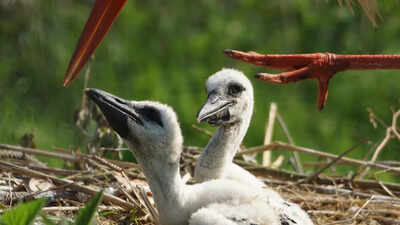ARTICLE AD BOX

It is said that nature is full of wonders, but it’s also full of some unexpected and tough choices that turn out to be darker truths. While we often see birds as nurturing and protective parents, especially during nesting season, some species show shocking behaviours from a human perspective.
One such behaviour is when the parent birds kill or eat their own offspring. It sounds brutal, but in the animal kingdom, survival often goes beyond being sentimental.This behaviour is, however, not based on cruelty. In fact, it can be a calculated step to maintain the harsh balance of nature. Resources are limited, and raising a brood requires a lot of energy. When conditions are less than ideal, some birds make the difficult biological choice to reduce their brood size so the remaining chicks have a better chance of survival.
It's a survival tactic that scientists call brood reduction.
And while it might seem cruel at first glance, it can actually increase the long-term success of the species.
Surprising choice to increase the chances of survival
In species like white and black storks, filial cannibalism has been observed more than once. According to a study by Meir Friedmann and Dan Alon, “Parent storks kill and sometimes eat their young in what appears to be an act of natural selection.” This might look shocking, is actually a form of brood reduction, which is a survival strategy birds use to ensure that at least some of their offspring survive when resources are low or when weaker chicks are unlikely to survive.
Why would a parent eat its own chick?
This behaviour usually happens when food is scarce. In such cases, parent birds may assess which chick is least likely to survive and remove it to reduce the competition for food. Sometimes they even eat the dead chick to regain nutrients. As strange as it sounds, this increases the survival chances of the healthier chicks. The parents essentially cut their losses to protect the rest of their brood.

White storks, for example, often lay more eggs than they can raise successfully.
This “extra” chick acts as an insurance policy in case another dies early. But if all hatch and food isn’t plentiful, and thus brood reduction often follows. According to Friedmann and Alon, “Storks choose to kill the weakest young because feeding all the chicks could endanger the entire brood.”Eating their own chicks is termed as filial cannibalism, but it is not just exclusive to storks. It’s been seen in many bird species, including herons to gulls, especially in tough environments. What might seem cruel to us is sometimes the only way for the species to ensure its future.



.png)
.png)
.png)
















 8 hours ago
5
8 hours ago
5









 English (US) ·
English (US) ·